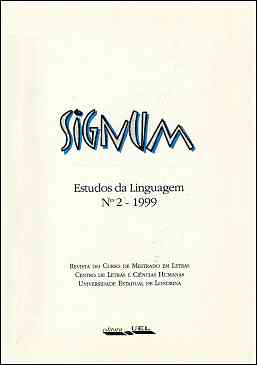The Importance Of Making Explicit The Particular Cultural Nuances In Foreign Language Teaching
DOI:
https://doi.org/10.5433/2237-4876.1999v2n1p139Keywords:
Teaching, Learning, Foreign Language, Syntatic Theory, Chomsky.Abstract
Structuralist assumptions directed the attention of scholars of language to the language code without developing a concern with respect to the pragmatic contexts of the text –discursive production. Nevertheless, linguistic structuralism did not achieve the expected results and this led to the need to introduce new concepts for the teaching and learning process. One of these was the notion of linguistic competence, which arose from the work of Chomsky on syntactic theory. Chomsky believes that humans have an innate inclination to infer the rules of language from the input to which they are exposed. Deducting these rules, they can create and understand expressions never heard before, or can develop their linguistic knowledge of the mother tongue (MT). We assume in this work that this Chomskian principle can also be used for foreign languages (FL), in other words, the genetic endowment for language directs the hypotheses of the learner to the relevant points in the construction of the FL.Downloads
Download data is not yet available.
Downloads
Published
1999-07-15
How to Cite
DURÃO, Adja Balbino de Amorin Barbieri. The Importance Of Making Explicit The Particular Cultural Nuances In Foreign Language Teaching. Signum: Estudos da Linguagem, [S. l.], v. 2, n. 1, p. 139–154, 1999. DOI: 10.5433/2237-4876.1999v2n1p139. Disponível em: https://ojs.uel.br/revistas/uel/index.php/signum/article/view/4455. Acesso em: 23 dec. 2024.
Issue
Section
Article
















